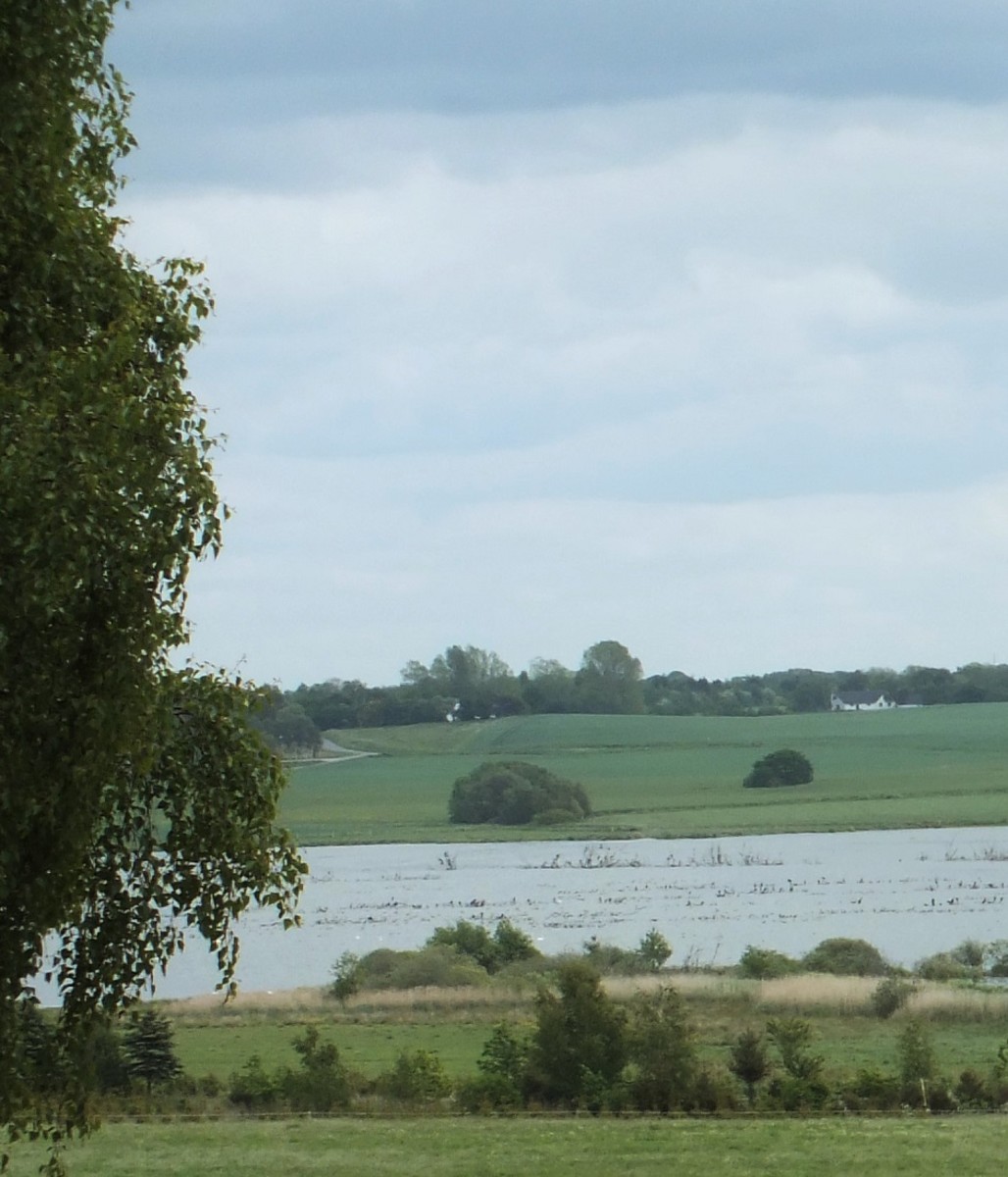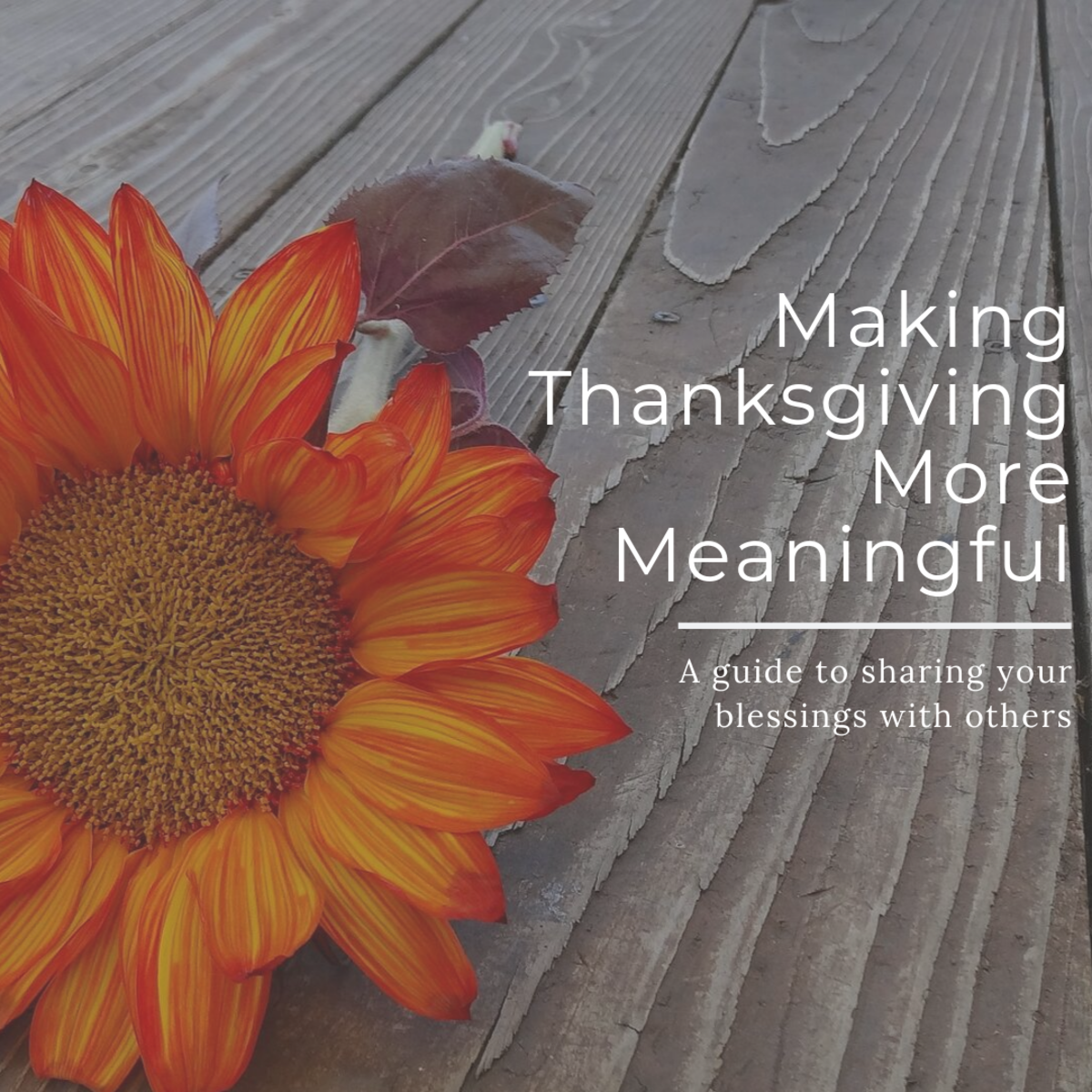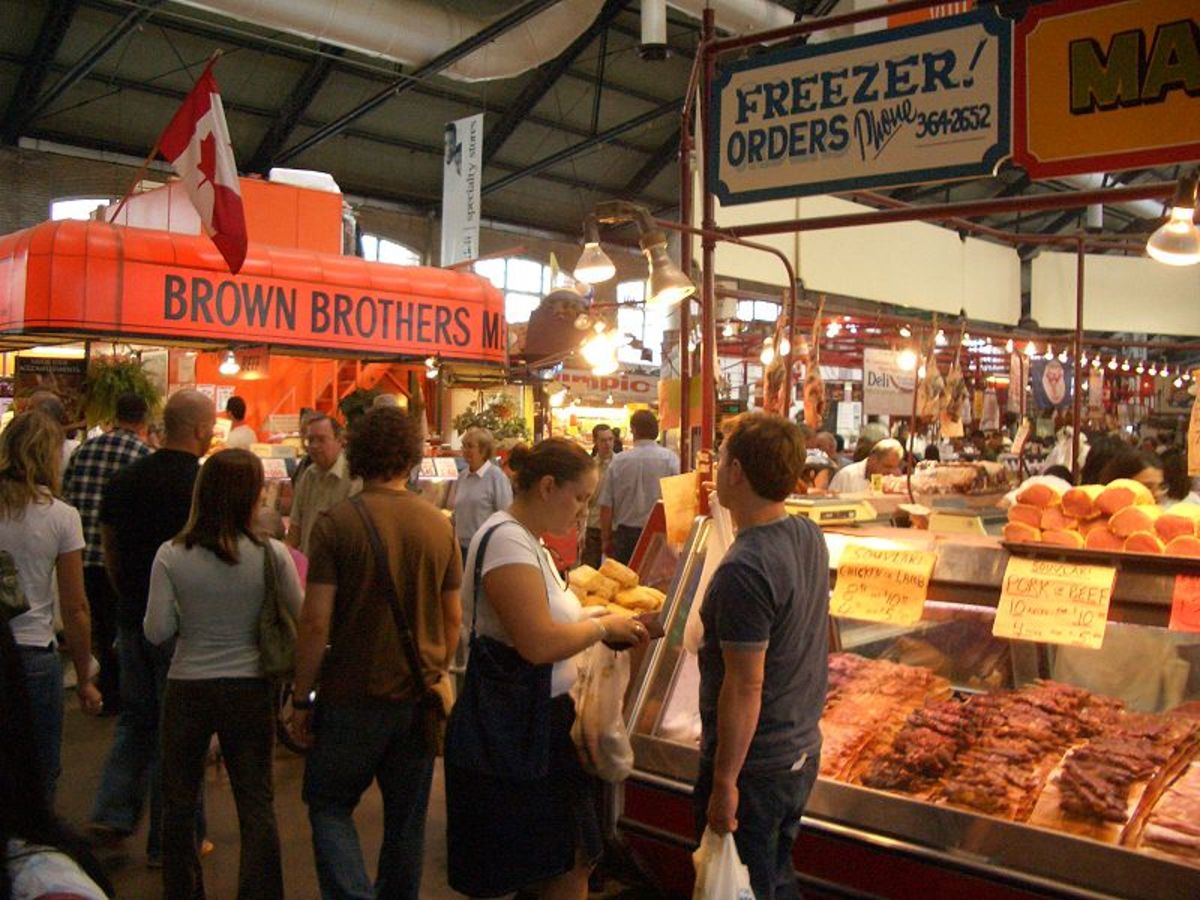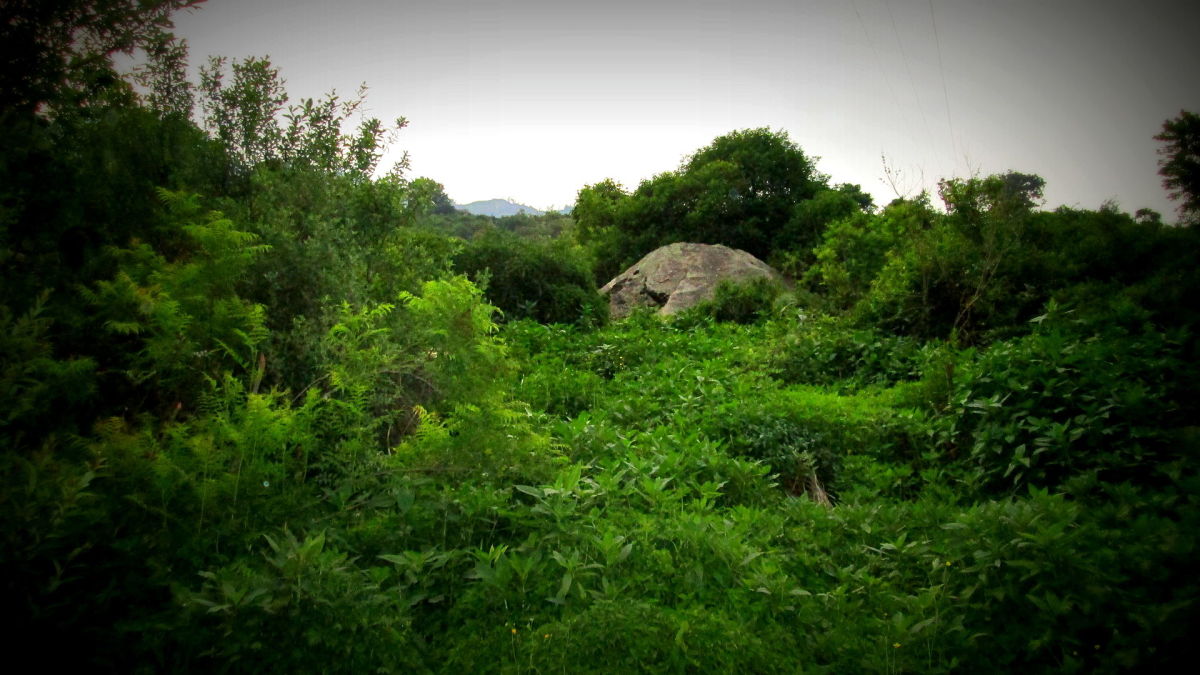Big Green World: Think Globally, Act Locally
Five Tips - Five Topics
I've broken this topic into 5 hubs for easier reading. This is the last topic in the series - yet it's where many people start! Don't get overwhelmed with the global situation; start with your own backyard, and work your way outward.
- On the Green Path: Get Outside and Play!
- Being Green: Eat Right, Marry Well, Big Picture
- Green Home Ec: Line Your Eco Nest
- Green Work: Finding Your Right Livelihood
- Big Green World: Think Globally, Act Locally (You Are Here)
Big Blue Marble
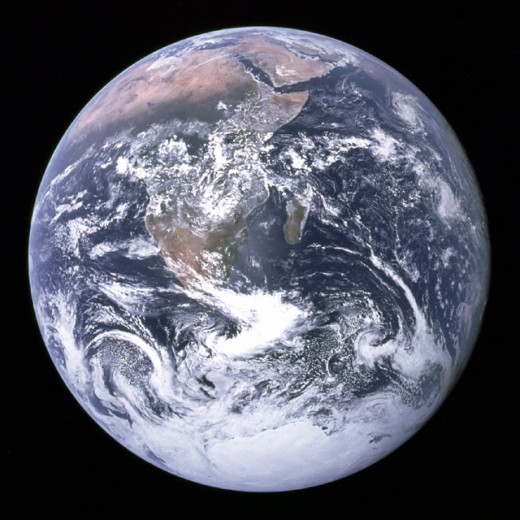
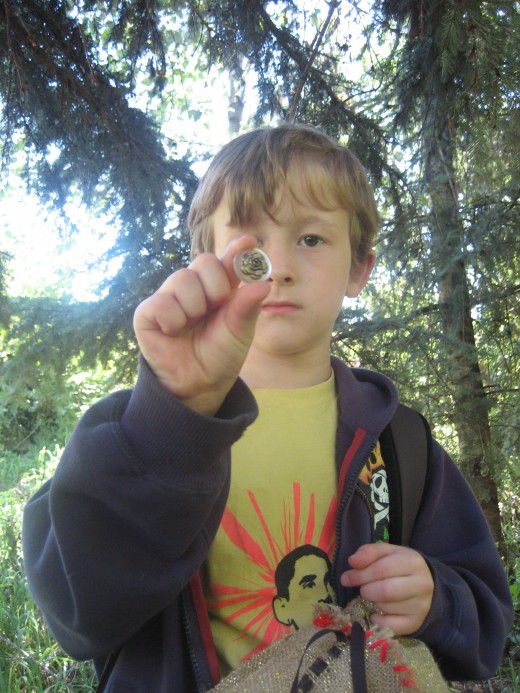
Big Green World: Global and Local
Green awareness is keeping the big picture in mind, while minding your own business.
It's the same awareness an artist uses, creating the larger image with each brush stroke.
It's the same awareness the mason uses, building a plumb, level wall, one brick at a time.
It's the same awareness a mother uses, balancing a child's current needs with its future.
1) To Change the World, Change your World.
M.L. from the City Repair Project likes to say, "The only way to overthrow the dominant paradigm is to have more fun than they do."
Think Globally, Act Locally.
Why? Isn't that selfish? Maybe, but it's good sense.
Locally,
- you have more power and influence,
- you have better knowledge of the factors involved, including local culture, and
- you can see the results (and unintended consequences) of your efforts.
Most of the world's situation is not due to mega-powerful people or famous historic events. It is the result of millions of small, local actions that all add up. If you can revive a good idea that's in danger of dying out, that's invaluable. If you can develop creative solutions in your neighborhood that are fun, productive, and sustainable, they just might catch on.
Even if they aren't portable, they work locally. Other people can develop small, local, appropriate solutions for their places. Arizona farmers can find ways to wring water from the sky; Oregon farmers need better-drained soil. When they each learn to grow more biomass, it pulls carbon dioxide out of the atmosphere for all of us. Global problems really can be solved locally.
Acting locally is meaningful. It's productive. It's fun. And it builds your "street cred" for taking things to the next level.
2) Listen to Old Folks.
Your local farmer sprays his trees. Your redneck grandpa won't call you a 'man' until you've killed a bloody animal. Your aunt doesn't think "vegan" is a real word, and keeps trying to serve you her famous lasagna.
Do they know something you don't? Did they made their living outdoors, or help create your local community? Sure, they don't know everything, but neither do you.
Show some respect, and some interest. Ask questions. Chop wood. Carry water. See if Auntie has a good recipe for eggplant parmesan, and learn to make the substitutions yourself.
It's possible that your elder relatives don't know anything about the outdoors, people, politics, how to capture opportunities, how to survive in tough times. But it's not likely. If they lived to be old, they've got some tricks up their sleeves worth learning.
Usually, the wisest ones won't offer outright advice, even if you ask them about your problems.
Their wisdom will come in the form of a question that pierces the problem's heart.
Answering that question may take you years.
3) Eat What You Love.
It's easy to think of the consumer and consumed as enemies. The winner grows, the loser dies. It fits with our ancestral memories of war, slavery, clear-cutting of virgin forest, farming that depletes the soil. If you use it, it's gone, and it doesn't come back. It's the perspectiveof many centuries of grief and hardship.
But what about ressurection, symbiosis? Berries and roses grow best when they're cut back. Seeds rely on their eaters to be spread. Deer populations stay healthy when there are wolves and hunters, but get crowded and starve if left alone. There are companions with us on this planet, and they thrive when we play our proper role in their lives.
Leaving things alone does not necessarily save them. To conserve rare species or resources takes active cultivation, intimate knowledge, and the judgement to balance public support with private recovery. It takes eating the seeds, and breaking up the rhizomes, and fertilizing them.
Life is a cycle, and you are what you eat. What you are will be eaten by others.
By raising a food animal, or hunting or fishing for your food, you become aware of that animal's needs and environment. When you buy packaged meat, you are aware of the package design, price, and portion. When you abstain from animal protein and choose corn, beans, oil, and tofu instead, you support the conversion of wilderness to farmland (or you replace the cow in the feed-lot system).
What are you trying to save? Carbon emissions? Food for more people? Wilderness? Guilt?
If you love it, eat it. In moderation. To support prairie and rangeland, eat buffalo. To celebrate the forest, buy wild-harvested chanterelles and local floral greenery. If you love the city, buy local signature products. If you love the factory's labor and social policies, buy their shoes.
Abstaining from something - unless it's endangered and needs time to recover - is like saying, "I don't need you, and I can't touch you without hurting you." It's like putting your Mom in a box. If you want your Mom to still be there, visit her once in a while, and make sure she has what she needs.
Consider thanking your food in this fashion:
By eating you, I become you: and I commit myself to a future that contains us together.
4) Meaningful, Manageable, Measurable.
My old boss passed this along from his high-tech work. If you're setting a goal, make it Meaningful, Manageable, and Measurable.
Meaningful: Does it relate to the main goal or value? Will your efforts be rewarded with visible results?
Managable: Don't set a goal that's not your job, not your skill-set, or outside your reasonable expectations. "I'm going to volunteer once a month at the co-op" is managable. "I'm going to convert Cincinatti to pacifism" is not. (It's a worthy dream. But it's not a manageable goal.)
Measurable: How will you know if you're meeting your goals?
"I will be a better person" sounds great ... but do you know when you're done?
"I will call my mother every Sunday," or
"I will walk the dog one mile per day," or
"My garden this year will not use pesticides," or
"I will give out 3 meal coupons to homeless people per week,"
that's measurable.
Anyone can tell if you've actually done it.
5) Do Three Things.
When I suffer from overwhelming choices, I give myself an assignment: Get 3 things done each day. Tangible things. Meaningful, measurable, managable things. Things that move my life forward, or remove obstacles.
Post an article, apply for that job or travel visa. Laundry might be included if it's a slow day. Call 3 people and invite them to a garden work-party. List my old blender for sale on Craigslist. Sometimes I make a master list, but usually I know what needs to be done, and what "counts" for my own sense of accomplishment.
Anybody can do 3 things in one day.
Once you do 3 things, it's easy to keep going.

